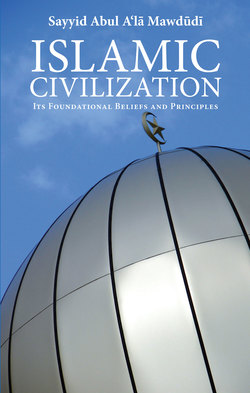Читать книгу Islamic Civilization - Sayyid Abul A'la Mawdudi - Страница 7
На сайте Литреса книга снята с продажи.
ОглавлениеTranslator’s Note
Sayyid Abul Aʿlā Mawdūdī (1903-79) is undoubtedly one of the greatest Islamic scholars produced by Muslim South Asia throughout its 1200 year-long history. With the launch of the Jamāʿat-i-Islāmī in 1941, he not only joined the ranks of leading Muslim reformers, but became the torch bearer of a new Muslim political awareness being born out of the demise of Western colonialism and imperialism. He was one of the progenitors of the people called by the rather new term ‘public intellectuals’ – the rare breed of people who not only sit behind their desks or search the deep recesses of libraries to produce new epistemological views and scholarship but also have the vigour and the vision to combine social and political activism with their intellectualism – persons who, to borrow a modern management phrase, ‘walk the talk’. Coming in the wake of the epochal work of South Asia’s all-time intellectual giant Muḥammad Iqbāl and his reformation of classical Muslim thought, Sayyid Mawdūdī joined other modern Mus-lim public intellectuals, like Muḥammad Rashīd Riḍā, to inspire three generations of twentieth-century Muslims on to the path of Muslim rethinking, reformation, and revolution.
Sayyid Mawdūdī’s political thoughts, chiefly the essential requirement of a vanguardist movement that was not just Islamic and revolutionary but one which also believed in the theo-intellectual basis of a state, which inspired reformist intellectuals like Sayyid Quṭb and numerous others throughout the Muslim world. Sayyid Mawdūdī’s influence on Muslim youth and intellectuals was very significant – so significant that Pakistan’s military and political elite saw him as a threat strong enough to be locked up and even sentenced to death!
The present work Islāmī Tahdhīb awr uske, Uṣūl-o-Mabādī is one of the few works of Sayyid Mawdūdī which has remained untranslated in a complete modern version, even though parts of the work have found their way to Western readers though other works of the author. I am grateful to two colleagues of my late father, Dr Zafar Ishaq Ansari and Professor Khurshid Ahmad, for reposing their confidence in me in giving me the chance to translate this work.
May God bless Sayyid Mawdūdī for his seminal works – and the team that has made this translation possible, which will help to bring the work of this great scholar to a new audience. I seek your prayers for my own forgiveness (maghfirah) as well as for that of my family, my late parents and for all Muslims.
| Makkah al-Mukarramah | Syed Akif |
Rabīʿ al-Awwal 1432
February 2011
